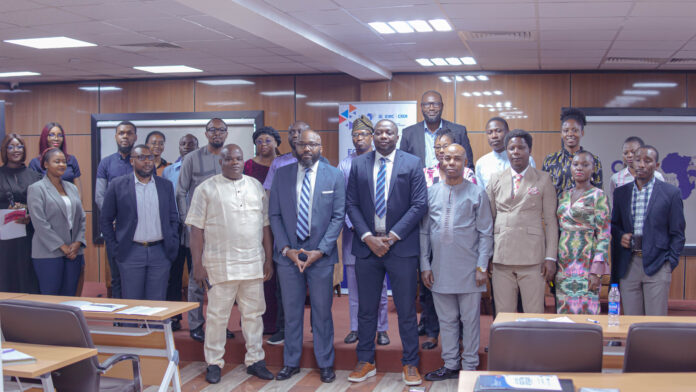In a groundbreaking report dissemination event titled “Towards Reconciling Economic and Debt Management Policies with Gender and Climate Objectives in Nigeria,” experts and other stakeholders convened in Abuja on Wednesday, September 6, to deliberate research findings from a three-fold report that shed light on fundamental fiscal policy options for growing out debt in Nigeria.
Hosted by the Center for the Study of the Economies of Africa (CSEA) in collaboration with the Brookings Africa Growth Initiative and funded by the International Development Research Centre (IDRC), the event marked the culmination of months of dedicated research aimed at addressing pressing concerns in Nigeria’s fiscal landscape.
“The rate at which debt is rising in Nigeria is a worrying trend, constraining the country’s ability to generate growth, cope with crises, and invest in development,” Dr. Chukwuka Onyekwena, Executive Director at CSEA, emphasized in his welcome address about the growing concern surrounding Nigeria’s escalating debt. Nigeria’s debt reached a staggering US$108.3 billion in 2023. This alarming increase, a 123% surge since 2012, has raised questions about the country’s capacity for growth, crisis management, and developmental investments.
In response to this economic challenge, CSEA and Brookings AGI undertook a comprehensive research project to provide empirical evidence of Nigeria’s capacity for growth, crisis management, and developmental investments. Fundamental fiscal policy options that could pave the way for Nigeria to reduce its debt burden while aligning with climate goals and promoting gender equality are critical objectives of the study.
“The reconciliation of economic and debt management policies with gender and climate objectives in Nigeria is a complex challenge with global implications. We must harness the insights from the recent research conducted by CSEA to drive meaningful change and impact to society,” Prof. Joseph Nnanna, Chief Economist at Development Bank of Nigeria and Keynote speaker at the event stated. He emphasized the need for innovative financing mechanisms, such as debt-for-climate swaps. He also highlighted the interconnectedness of economic sustainability, climate action, and gender equity in Nigeria’s path toward a sustainable and resilient future.
The three studies were presented at the event by Mma Ekeruche, Senior Research Fellow at CSEA, Prof. Nnaemeka Chukwuone, Director of REPRC at Environment for Development, and Tikristini Olawale, Research Associate at CSEA. The studies and panel conversations underscore the interconnectedness of economic, environmental, and social goals and advocate for their reconciliation.
Debt for Climate and Development Swaps in Nigeria explores the potential of debt-for-development swaps, unlocking up to US$11 billion from debt obligations. These resources can be redirected toward climate-smart projects, renewable energy initiatives, and sustainable development.
Determining the Optimal Carbon Pricing Policy for Nigeria stressed that, despite its effectiveness, Nigeria lacks a carbon tax policy for greenhouse gas reduction. The study proposes a phased carbon tax policy that could reduce emissions by up to 2.4 million tonnes annually while generating NGN4.3 trillion in revenue for critical investments.
Effects of Gender Inequality during Global Health Emergencies helped highlight the often overlooked impact of gender inequality during crises and provides empirical evidence that implementing gender-responsive policies could increase Nigeria’s revenue by up to 9% of GDP.
The event welcomed insightful panel discussions and deliberations, reinforcing the transformative power of knowledge, collaboration, and the responsibility to translate research into action. As Nigeria grapples with complex challenges, the research presented at this event offers a ray of hope and a path toward a more equitable, sustainable, and prosperous future.











